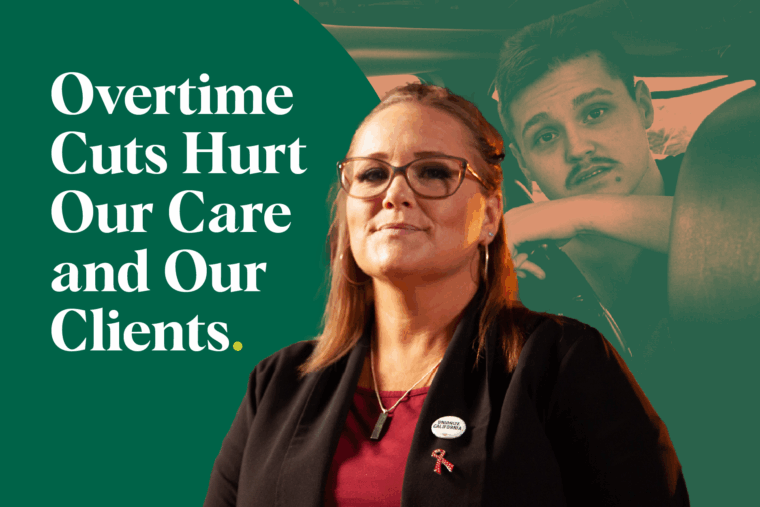When Governor Gavin Newsom released his 2025 May Revise Budget Proposal it included slashing overtime hours for IHSS providers from 66 hours to 50. That’s a 16-hour loss—not just in wages, but in critical care hours our clients depend on to survive and thrive.
This isn’t the first time we’ve had to fight for overtime, in fact, home care workers had been excluded from basic wage protections like overtime pay for over 75 years. That was until we won overtime once and for all in 2016.
While these cuts do not eliminate overtime fully, they do have a real impact on all of us.

UDW President and home care provider, Astrid Zuniga, cares for her son Manny who lives with autism. Manny is non-verbal and relies on Astrid for nearly every task in his daily life. Because of his needs, Astrid is approved for overtime hours to ensure Manny’s needs are met.
“Losing these hours is almost unimaginable. We rely on these hours to support Manny, our family and our needs,” said Astrid. “Manny is nonverbal, can be combative, and is an adult who is not toileted. Asking another provider to come in and make up those hours as the Governor suggests is impossible and putting him in an adult day center to watch him is not only unaffordable, but because of his needs, he doesn’t qualify for most centers.”
Astrid and Manny are not alone. The Governor’s proposal would strip $707.5 million dollars from providers receiving overtime pay. In UDW counties alone, that is nearly 85,000 providers!
We cannot afford to go backwards. We’ve fought for decades to win the right to overtime like every other workforce. This proposal undermines our work, our dignity, and the wellbeing of those who count on us. It sets us back and puts lives at risk.
“We spent years fighting for the right to overtime. We told our stories. We demanded dignity and respect for the essential work we do,” Astrid added. “Now, to be told we don’t need these hours is not only disrespectful—it’s degrading. Once again, we’re being forced to prove our worth and justify our existence. But make no mistake: we are professionals. We care for California’s most vulnerable residents, and we will not stop fighting for what we’ve earned.”
